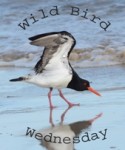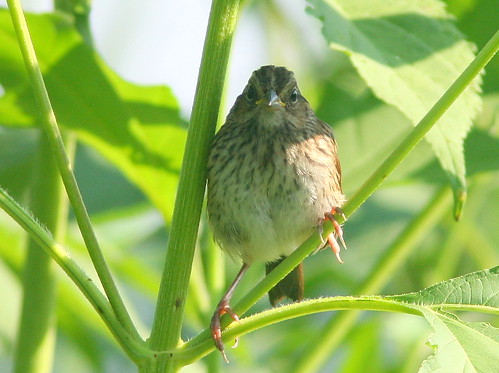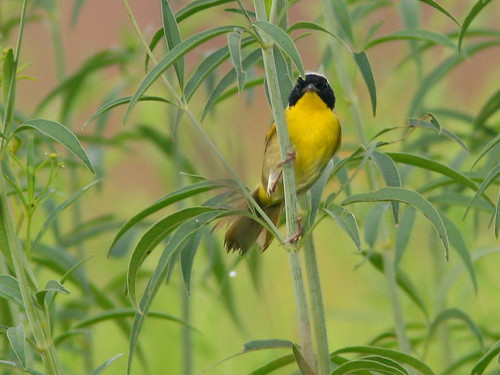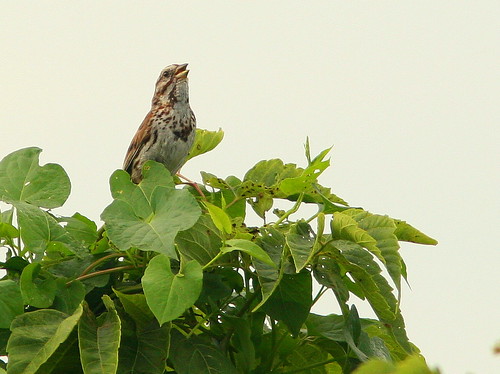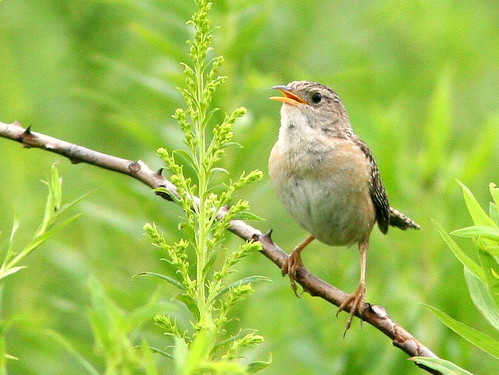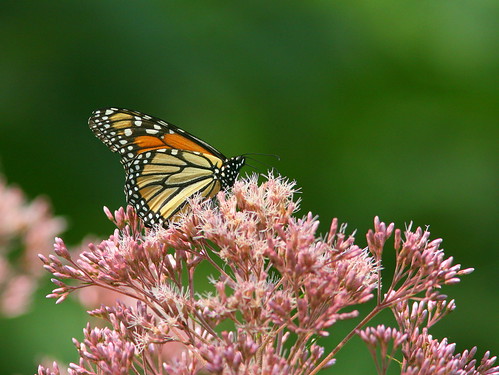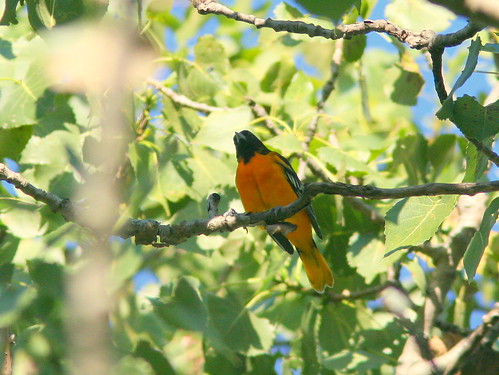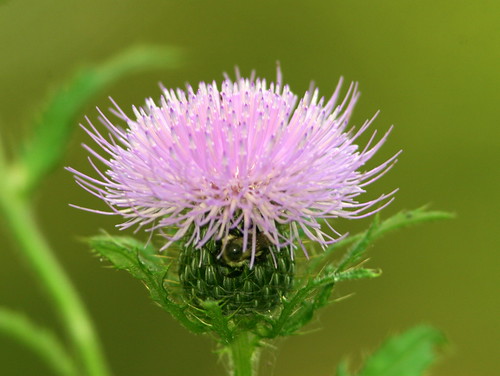After enduring several weeks of near-record heat in Florida, we looked forward to our return to Illinois. On our first night, we slept with windows open, and got out early for a power walk at 60 degrees Farenheit. After breakfast we headed for nearby Dick Young/Nelson Lake Forest Preserve. As the sun got higher it quickly heated up, and the ravenously hungry mosquitoes ignored our “Deep Woods Off.” Still, it was nice to get reacquainted with the local birds.
Canada Geese honked overhead: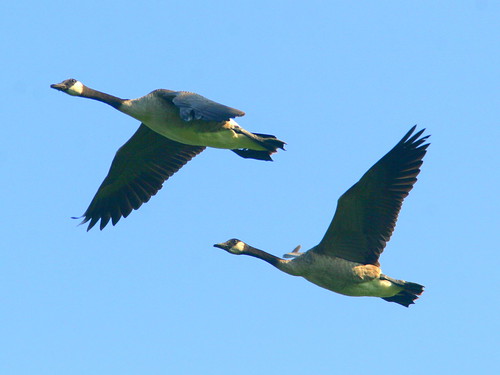
A lone Double-crested Cormorant craned its neck to look down at us inquisitively:
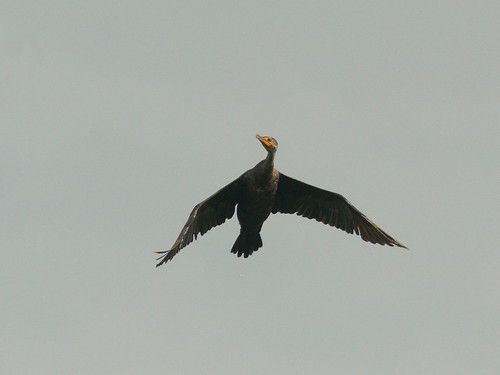
Indigo Buntings were still in full song:
We were amazed to see a male Indigo Bunting fly right up in front of an Eastern Kingbird and sing in its face:
Two immature Red-winged Blackbirds perched together and allowed me a close approach. The bird on the left bore distinctive markings that I had not seen before that (I believe) indicated it was a hatch year male (click on photo to see a more typical year old male, below the caption):
A Cotton-tailed Rabbit leapt up from under my feet, and I captured an “in-flight shot” of it, suspended in mid-air:
At first, I was unsure of the identity of this bird, but I did hear a Swamp Sparrow singing nearby, and this bird’s yellow gape and face markings were consistent with a juvenile of that species:
Common Yellowthroats were still singing in the high forbs along the trail:
Song Sparrows were numerous. They seem never to stop singing on their territories:
Only a few weeks ago, we had found dozens of Sedge Wrens singing along the paths. This morning, we found only two. Rather than singing, this one scolded softly from an elevated perch before diving into the cover of the tall grass at the south end of the lake:
Butterflies, such as this Monarch, were active:
For the next week, the heat, humidity and mosquitoes felt worse than we had endured in Florida the previous month. We ventured out to Lippold Park, another Kane County Forest Preserve situated on the east bank of the Fox River. This is usually a great spot for migrating warblers. We saw no warblers, but we were still a bit early. The mosquitoes were again out in force, and there were few birds evident. This is the end of breeding season and the time of the post-breeding molt, so locally breeding migrant birds were conserving energy in preparation for the long journey.
We did hear the scolding of several House Wrens, but were lucky enough to see only one. This appeared to be a hatch-year bird, as its plumage was dusky and it had the remnants of the yellow gape of a fledgling:
High in the canopy of a Cottonwood, a Baltimore Oriole perched quietly, keeping cool in the shade:
Thistles, which provide the late-nesting goldfinches with food and nesting materials, were in bloom. Is that an evil eye peering at me from under the flower head? No, it is a Carpenter Bee, distinguished from the Bumblebee by its almost bare and shiny black abdomen (the “eye”):
Here is a better view of the Carpenter Bee, as it gathers pollen to feed the larvae that will hatch from its large eggs hidden at the end of the tunnels it drills in dead wood. Note the narrow “waist” band of yellow hairs at the front end of an otherwise shiny black abdominal segment:
Yesterday, the heat retreated before a dry cold front that produced another open-window night. We are again happy to be in Illinois in early August!







